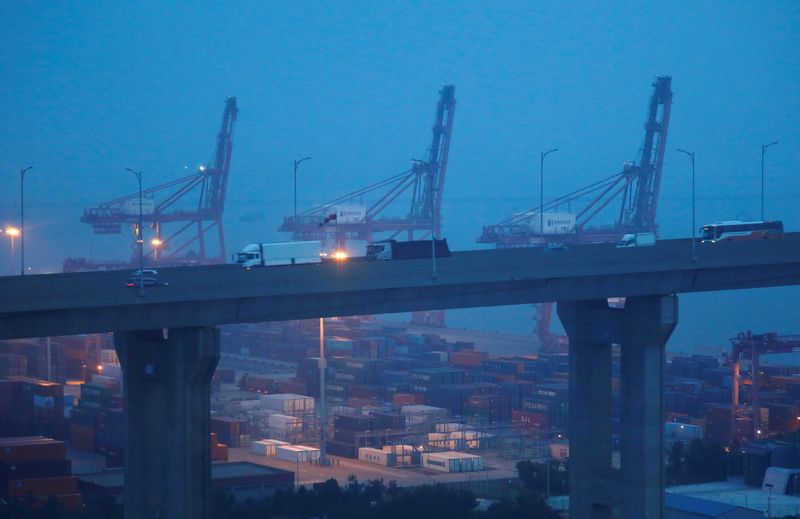SEOUL (Reuters) -South Korea’s exports grew at their slowest pace in 14 months in April, with the trade deficit widening as China-bound shipments shrank and rising energy and raw materials prices pushed up the country’s imports.
Exports grew 12.6% from a year earlier to $57.69 billion, trade ministry data showed on Sunday, the slowest since February 2021. It was below the forecast for 14.5% growth in a Reuters poll and slower than the 18.2% rise in March.
South Korea’s monthly trade data, the first to be released among major exporting economies, is considered a bellwether for global trade.
Exports to China, South Korea’s biggest trading partner, were hurt by Beijing’s zero-coronavirus policies, with lockdowns hitting industrial production and disrupting supply chains.
Shipments to China fell 3.4%, while those to the United States rose 26.4% and to the European Union increased 7.4%.
Exports of semiconductors, the country’s top foreign exchange earner, climbed 15.8%, while petrochemical products rose 6.8%. Outbound shipments of oil jumped 68.8% and steel products rose 21.1%. Imports increased 18.6% to $60.35 billion, led by a combined $14.81 billion worth of imports of crude oil, gas and coal.
That gave South Korea a trade deficit of $2.66 billion, wider than the March deficit of $115 million.
The export slowdown comes as the country battles red-hot inflation. The Bank of Korea last month raised its benchmark rate to the highest since August 2019 in a surprise move, expressing concerns that the economy is expected to miss the bank’s February growth forecast of 3% for this year.
(Reporting by Joori Roh; Editing by Chris Reese and William Mallard)























